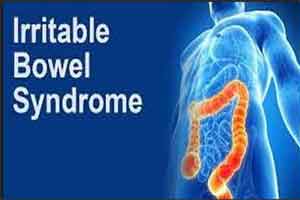- Home
- Editorial
- News
- Practice Guidelines
- Anesthesiology Guidelines
- Cancer Guidelines
- Cardiac Sciences Guidelines
- Critical Care Guidelines
- Dentistry Guidelines
- Dermatology Guidelines
- Diabetes and Endo Guidelines
- Diagnostics Guidelines
- ENT Guidelines
- Featured Practice Guidelines
- Gastroenterology Guidelines
- Geriatrics Guidelines
- Medicine Guidelines
- Nephrology Guidelines
- Neurosciences Guidelines
- Obs and Gynae Guidelines
- Ophthalmology Guidelines
- Orthopaedics Guidelines
- Paediatrics Guidelines
- Psychiatry Guidelines
- Pulmonology Guidelines
- Radiology Guidelines
- Surgery Guidelines
- Urology Guidelines
Low FODMAP diet improves symptoms of IBS more than other diets

Adults with irritable bowel syndrome (IBS) who followed a low FODMAP diet had fewer symptoms than those who followed standard dietary advice. They scored their symptoms about 50 points better on a 500 point scale.
A low fodmap diet is an emerging approach for IBS. It is based on the theory that certain carbohydrates can expand or ferment in the gut and cause symptoms for some people.
This review included five randomized trials in adults who rated their symptoms before and after introducing the low FODMAP diet, or a standard diet, for between one and three months. There are weaknesses in the reporting of this review and uncertainties about the reliability of the underlying trials and the duration of any benefit.
However, given the chronic nature of IBS and negative impact on quality of life, FODMAP may be worth considering despite the comparatively low quality evidence.
Why was this study needed?
Irritable bowel syndrome affects between 10 and 20% of adults in the UK. It costs around £7.8 million in England per year to treat.
People with this long-term condition experience abdominal pain, bloating and constipation, diarrhoea or both. There is no disease abnormality found in the gut, but digestion is abnormal, and the bowel may be hypersensitive. Stress and certain foods seem to make symptoms worse.
Treatment varies according to the individual and usually involves dietary adjustments. Standard advice is to increase fibre and decrease fatty foods. However, recent studies have shown that a diet low in fermentable oligosaccharides, disaccharides, monosaccharides and polyols (FODMAPs) may relieve symptoms.
This review aimed to compile the evidence on the effectiveness of a low FODMAP diet compared with standard dietary advice, to inform practice.
What did this study do?
This systematic review identified five randomised controlled trials with 306 participants (and other studies that we have not included in this summary).
All studies compared scores on the Irritable Bowel Syndrome-Symptom Severity Score (IBS-SSS). Five questions on abdominal pain, bloating, bowel habits and quality of life are scored on a visual analogue scale of one to 100mm, with a maximum score of 500 across the five dimensions representing worst impact.
Study quality was low to moderate but appears the best available so far. One of the trials was not available as full text. Sample size ranged from 37 to 82 participants. Study duration ranged from three to 12 weeks. Diet content varied in both groups. People received dietician support to follow the FODMAP diet. Standard diets were mixed but always contained more FODMAP foods than the low FODMAP diets.
What did it find?
- People who followed a low FODMAP diet did have significantly fewer irritable bowel syndrome symptoms than those who followed standard diets. Symptom scores were on average 51.5mm in the intervention group than in the control group (95% confidence interval 18.9 to 84.2). However, this analysis did include one additional non-randomised trial with 56 participants, which showed a positive effect.
- There was a considerable difference (heterogeneity) in the results of all studies and a lack of reporting of the susceptibility to bias. Therefore, though suggesting a benefit of the low FODMAP diet, the findings of both analyses should be interpreted with some caution and any benefits are likely to be smaller than suggested here.
What does current guidance say on this issue?
NICE 2008 guidelines on the management of irritable bowel syndrome recommend dietary and lifestyle advice. NICE highlight the importance of education and self-help strategies to manage lifestyle, diet, physical activity and medication. Nutritional advice includes having regular meals and eating slowly, staying well-hydrated and limiting caffeine, alcohol and fizzy drinks. It suggests reducing high-fibre foods, fresh fruit and resistant starch such as oats.
NICE suggest trying exclusion diets (for example low FODMAP) if symptoms persist, but emphasise this advice should only be offered by a dietitian.
What are the implications?
These findings bring together the available evidence on the possible emerging benefits of the low FODMAP diet. They support the NICE guidance for cautiously trying these diets in selected cases.
The quality of evidence is a limitation. The mix of people in the studies means it is not possible to say whether the diet benefits one subtype of irritable bowel syndrome more than another. It is also unclear whether improvements were maintained during subsequent food re-introduction phases and in the long term.
Practitioners should ensure a dietician supports patients through the complex plan and helps maintain adequate nutrition.
Better quality trials are needed to clarify these results and investigate the long-term effect on symptoms.
Citation and Funding
Varjú P, Farkas N, Hegyi P, et al. Low fermentable oligosaccharides, disaccharides, monosaccharides and polyols (FODMAP) diet improves symptoms in adults suffering from irritable bowel syndrome (IBS) compared to standard IBS diet: A meta-analysis of clinical studies. PLoS One. 2017;12(8):e0182942.

Disclaimer: This site is primarily intended for healthcare professionals. Any content/information on this website does not replace the advice of medical and/or health professionals and should not be construed as medical/diagnostic advice/endorsement or prescription. Use of this site is subject to our terms of use, privacy policy, advertisement policy. © 2020 Minerva Medical Treatment Pvt Ltd